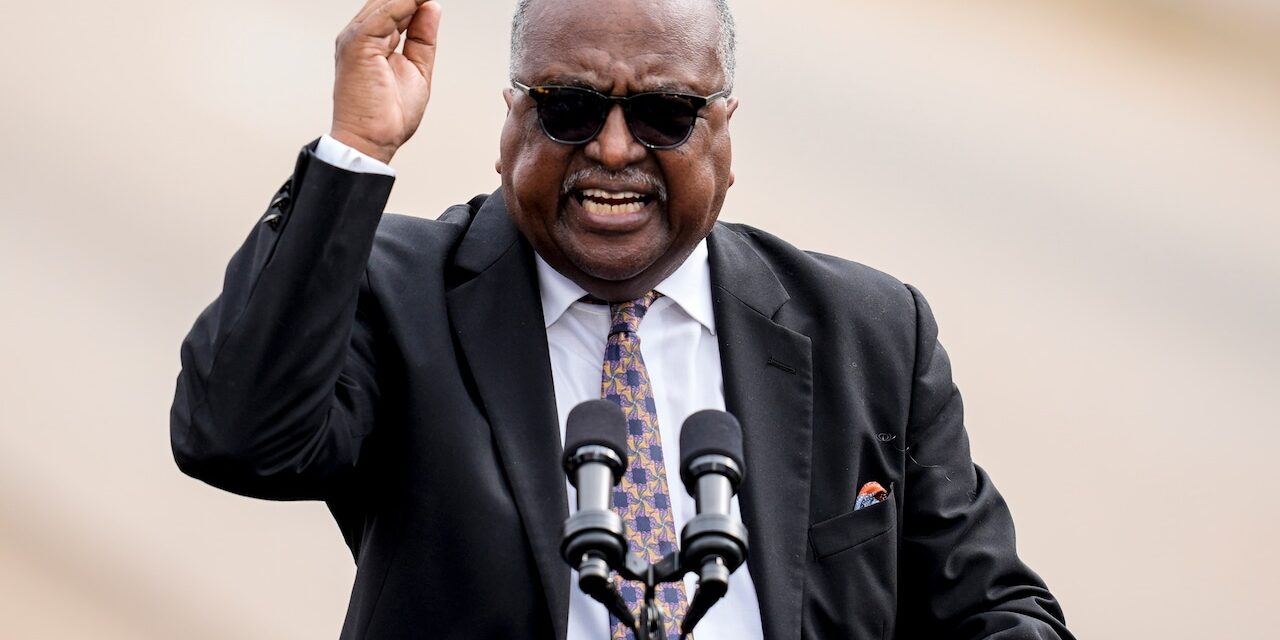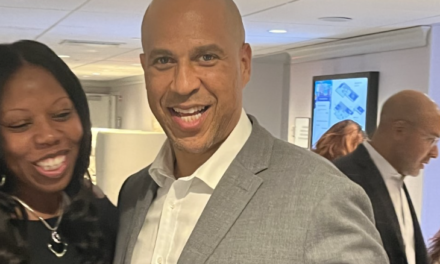
The longtime president and CEO of a leading civil rights organization co-founded by Dr. Martin Luther King Jr. in 1957 is stepping down at the end of the month.
Charles Steele Jr., 78, said Saturday that he’s far from retiring even if his final day as the leader of the Atlanta-based Southern Christian Leadership Conference (SCLC) is Aug. 31.
Steele, who will be the organization’s president emeritus, said he will assist the organization in dealing with issues such as affordable housing, economic development, entrepreneurship, reparations and voting rights.
“I’m far from retiring,” said Steele, who served as president and CEO with the SCLC for approximately 17 years over the span of two separate terms. He served in that role from 2004-2009 and returned to the position in 2012, where he has served for the past 12 years.
Joseph Lowery, a Huntsville native who served as the group’s president from 1977-1997, is the only head of the civil rights organization to serve in the post longer than Steele.
Only seven men have been president of the organization, including King’s oldest son, Martin Luther King III. The group has also been headed up by civil rights icons like Ralph Abernathy and Fred Shuttlesworth. Steele replaced Shuttlesworth in 2004.
“Shuttlesworth was president for nine months and he was a great leader in his own right,” Steele said. “We had a lot of problems at the time over the direction of where the SCLC should go. I came in and stabilized it. I hope that is part of my legacy, as well as building a brand new state-of-the-art building (on Auburn Avenue) in Atlanta.”
A Tuscaloosa native, Steele was elected to the Tuscaloosa City Council 39 years ago in 1985, serving two terms before he was elected to the Alabama State Senate in 1994. He was a three-term senator, resigning in 2004 to take over as the head of SCLC.

Sen. Rodger Smitherman, D-Birmingham, left, Sen. Charles Steele, Jr., D-Tuscaloosa, center, and Sen. Sundra Escott, D-Birmingham, talk during a session at the statehouse in Montgomery, Ala., on Thursday, April 8, 2004. (AP Photo/Jamie Martin)AP
“Alabama is home,” Steele said, adding that he plans to bring issues of affordable housing and entrepreneurship for Black business owners to Alabama. “We’re having problems with getting contracts from the federal, state (governments) and corporate America. The partnerships at the top (of corporate board rooms) are white males and no persons of color to any degree.”
Steele said affordable housing, homeownership and other issues of property rights will continue to be an issue he wants to address.
“African Americans own less than 2 percent of the land,” he said. “We don’t have a control of the land. We must own the land.”
He also wants to tackle the controversial issue of reparations for slavery, saying that descendants of the transatlantic slave trade have never been compensated. He also said he is concerned with the growth of “divisive concepts” legislation in states throughout the U.S., including in Alabama.
According to an analysis by Chalkbeat, there have been 36 states that have considered legislation or adopted legislation to restrict education on racism, bias and the contributions of specific racial or ethnic groups to the U.S.
“You have different institutions and state leaders across this country who don’t want African Americans to know what they came from,” Steele said. “They don’t want to know our history. If you don’t know your history, you’re destined to repeat it.”
The SCLC is rooted in American civil rights history and was established in 1957 to coordinate the action of local protest groups throughout the South. The Montgomery bus boycott served as the organization’s catalyst.
Voting rights have long served as a hallmark issue for the SCLC. The group’s first major campaign – the Crusade for Citizenship – began in late 1957, with the objective ore registering thousands of disenfranchised voters in time for the 1958 and 1960 elections. The crusade continued through the early 60s.
Steele is blunt in what’s happened to that effort over the years.
“We lost it,” he said, referring to the 5-4 decision by the U.S. Supreme Court in 2013, to dismantle the heart of the Voting Rights Act of 1965 by allowing nine states – including Alabama, and others in the South – to change their election laws without advance federal approval.
“When I was coming up, we were taught through teachers and parents that the federal government was a friend of African Americans and then we lost the protections that Dr. King worked so hard for,” Steele said. “The people must be educated on what’s going on.”
The Supreme Court, last June, did make a surprising turn in ruling on voting rights when it invalidated a Republican-led effort in Alabama on congressional redistricting. The result created a redrawn congressional map and a new 2nd Congressional District in Alabama that gives Black voters the opportunity to elect a candidate of their choosing.
Democratic candidate Shomari Figures is currently battling Republican Caroleene Dobson in a fierce contest for the open seat in South Alabama ahead of the Nov. 5 general election.
“Figures has been a friend of mine for a long time,” Steele said. “It’s very important for him to get elected.”



